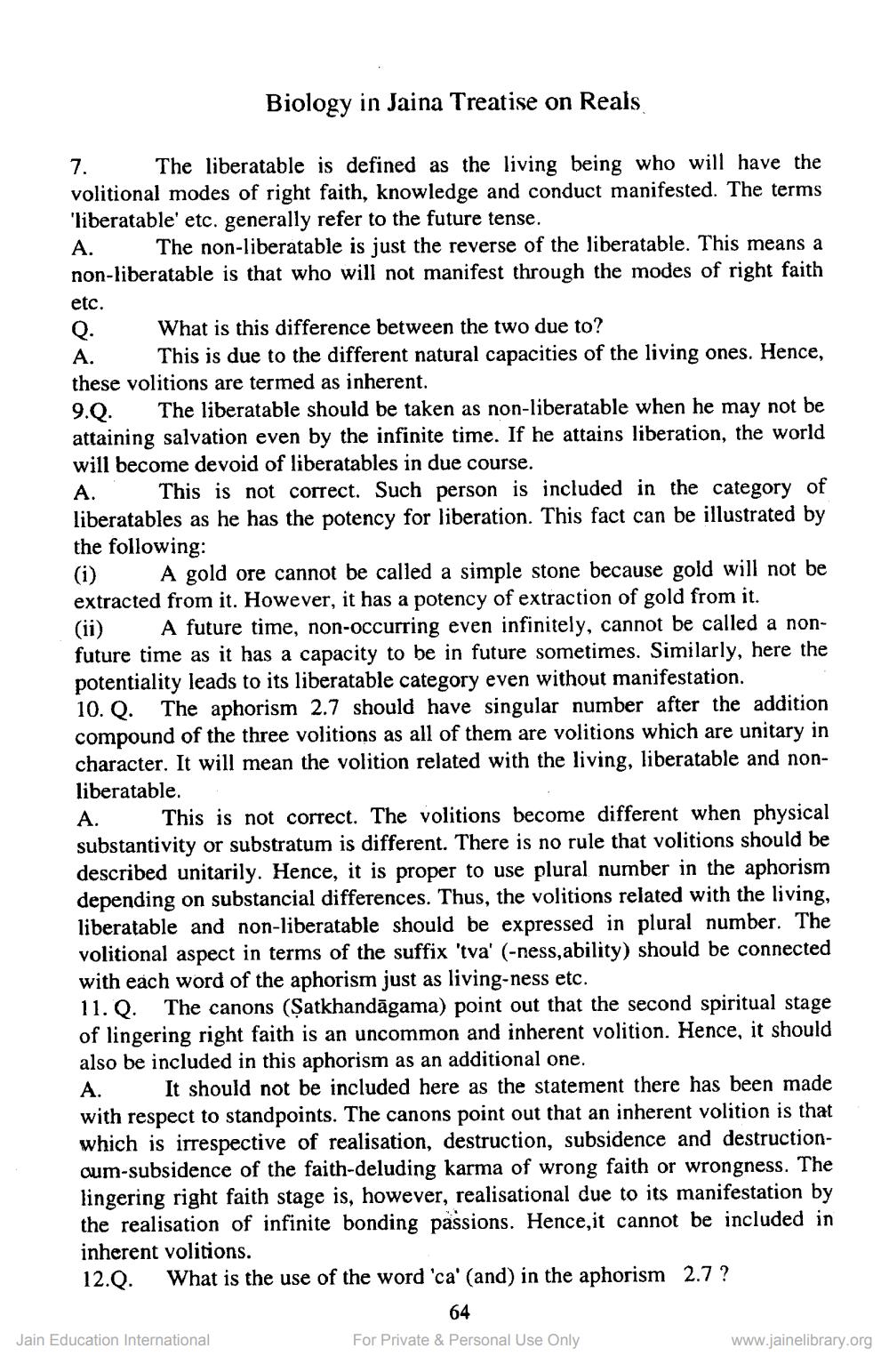________________
Biology in Jaina Treatise on Reals
7. The liberatable is defined as the living being who will have the volitional modes of right faith, knowledge and conduct manifested. The terms "liberatable' etc. generally refer to the future tense. A. The non-liberatable is just the reverse of the liberatable. This means a non-liberatable is that who will not manifest through the modes of right faith etc.
What is this difference between the two due to?
This is due to the different natural capacities of the living ones. Hence, these volitions are termed as inherent. 9.0. The liberatable should be taken as non-liberatable when he may not be attaining salvation even by the infinite time. If he attains liberation, the world will become devoid of liberatables in due course. A. This is not correct. Such person is included in the category of liberatables as he has the potency for liberation. This fact can be illustrated by the following: (i) A gold ore cannot be called a simple stone because gold will not be extracted from it. However, it has a potency of extraction of gold from it. (ii) A future time, non-occurring even infinitely, cannot be called a nonfuture time as it has a capacity to be in future sometimes. Similarly, here the potentiality leads to its liberatable category even without manifestation. 10. Q. The aphorism 2.7 should have singular number after the addition compound of the three volitions as all of them are volitions which are unitary in character. It will mean the volition related with the living, liberatable and nonliberatable. A. This is not correct. The volitions become different when physical substantivity or substratum is different. There is no rule that volitions should be described unitarily. Hence, it is proper to use plural number in the aphorism depending on substancial differences. Thus, the volitions related with the living, liberatable and non-liberatable should be expressed in plural number. The volitional aspect in terms of the suffix 'tva' (-ness, ability) should be connected with each word of the aphorism just as living-ness etc. 11. Q. The canons (Satkhandāgama) point out that the second spiritual stage of lingering right faith is an uncommon and inherent volition. Hence, it should also be included in this aphorism as an additional one. A. It should not be included here as the statement there has been made with respect to standpoints. The canons point out that an inherent volition is that which is irrespective of realisation, destruction, subsidence and destructioncum-subsidence of the faith-deluding karma of wrong faith or wrongness. The lingering right faith stage is, however, realisational due to its manifestation by the realisation of infinite bonding passions. Hence, it cannot be included in inherent volitions. 12.Q. What is the use of the word 'ca' (and) in the aphorism 2.7 ?
64 Jain Education International For Private & Personal Use Only
www.jainelibrary.org




